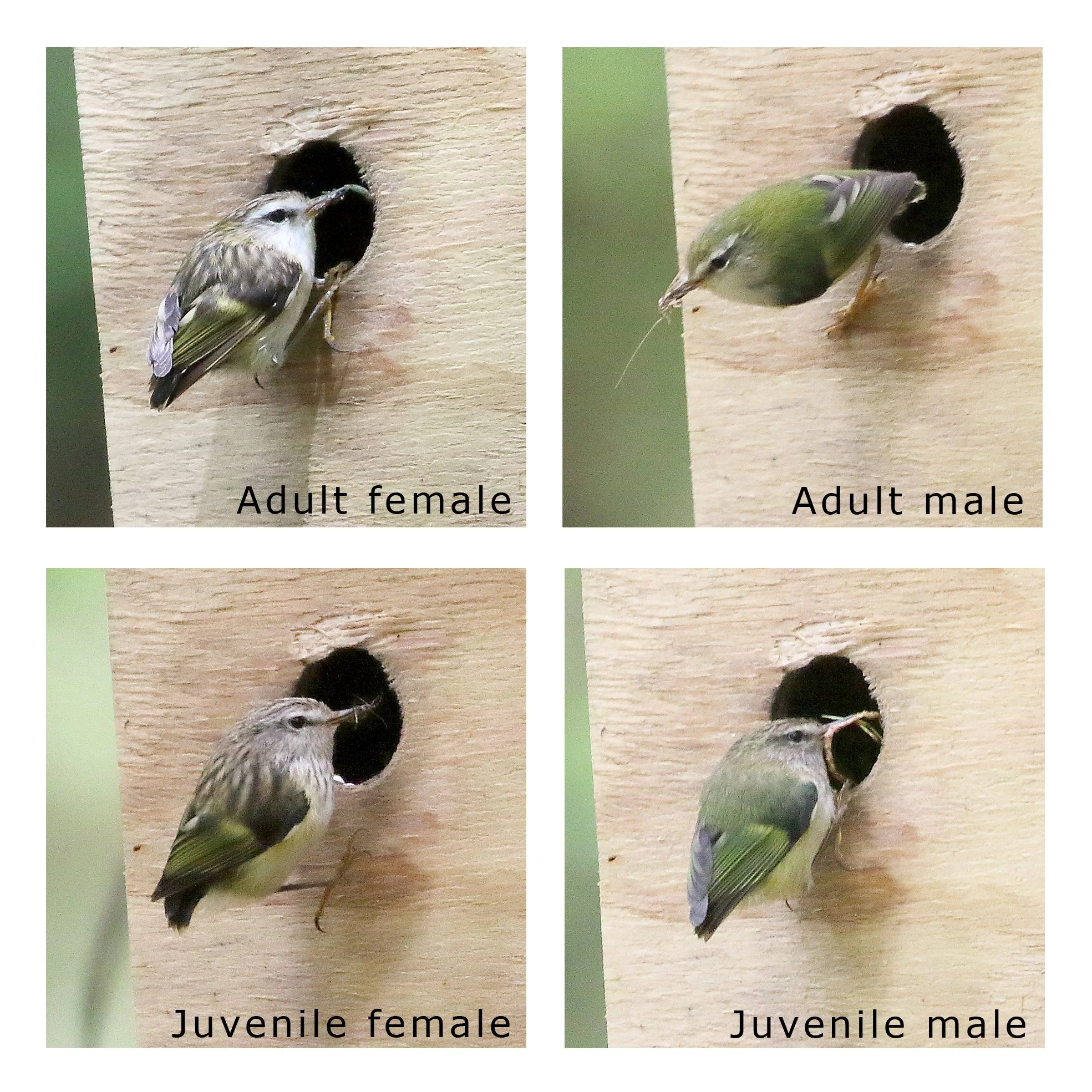Now, back at Pūkaha I identified one adult female and one adult male taking food to their nestlings inside the nestbox, pretty standard parental behaviour. Then, I noticed a juvenile male titipounamu was calmly foraging near the nestbox. This piqued my interest, as from my experience with the titipounamu at Zealandia, any other bird near an active nestbox would be immediately chased away by protective parents. Curious, I stood further back and watched the activity from a safe distance without disturbing the birds so I could watch this unfold naturally.









